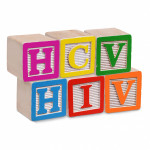People who take Harvoni (ledipasvir/sofosbuvir) to treat hepatitis C virus (HCV) can apparently take it along with the antiretroviral (ARV) Viread (tenofovir disoproxil fumarate, or TDF) without posing a threat to their kidney health, Infectious Disease Advisor reports.
Viread is approved to treat both HIV and hepatitis B virus (HBV). The drug is included in the double-ARV combination tablet Truvada (tenofovir disoproxil fumarate/emtricitabine), which is approved for use as pre-exposure prophylaxis, or PrEP, against HIV. The drug is also included in the single-tablet HIV regimens:
- Atripla (efavirenz/tenofovir disoproxil fumarate/emtricitabine)
- Complera (rilpivirine/tenofovir disoproxil fumarate/emtricitabine)
- Stribild (elvitegravir/cobicistat/emtricitabine/tenofovir disoproxil fumarate)
- Symfi (efavirenz 600 mg/lamivudine/tenofovir disoproxil fumarate)
- Symfi Lo, (efavirenz 400 mg/lamivudine/tenofovir disoproxil fumarate)
Research has indicated that combining the ledipasvir component of Harvoni with the ARV class of protease inhibitors plus a so-called booster—either Norvir (ritonavir) or Tybost (cobicistat)—may increase the risk of kidney-related toxicity driven by Viread. The reason for this concern is that both ledipasvir and boosted protease inhibitors can increase the levels of Viread in the body. Consequently, guidelines tend to recommend switching an individual’s ARV treatment regimen or to have him or her take a non-Harvoni HCV regimen to avoid the potential for such drug-drug interactions. If combining such medications is still recommended, clinicians should closely monitor the individual’s kidney function during Harvoni treatment.
Publishing their findings in BMC Infectious Diseases, Portuguese researchers analyzed data on 273 people coinfected with HIV and HCV who received Harvoni. A total of 145 of them were taking an ARV regimen that did not include Viread, 78 took Viread and no boosted protease inhibitor, and 50 took Viread along with a boosted protease inhibitor.
Looking at the participants’ eGFR test results, which are an indicator of kidney function, the researchers saw a significant decrease during Harvoni treatment among all three study groups. Those receiving Viread without a boosted protease inhibitor experienced the greatest decline in eGFR results.
The eGFR results declined more steeply among those treated with Harvoni for 24 weeks, compared with those taking a shorter treatment course, and in those with cirrhosis, compared with those without the advanced liver disease.
At the end of the study’s follow-up period, all participants’ eGFR levels had recovered any declines.
The study authors concluded that Harvoni treatment is associated with a small and reversible decline in eGFR levels and that Viread was not associated with any increase in kidney-related toxicity risk. Nevertheless, they stressed that if people combine Viread with Harvoni, they should have their kidneys closely monitored, in particular if they have cirrhosis.
To read the Infectious Disease Advisor article, click here.
To read the study, click here.







Comments
Comments